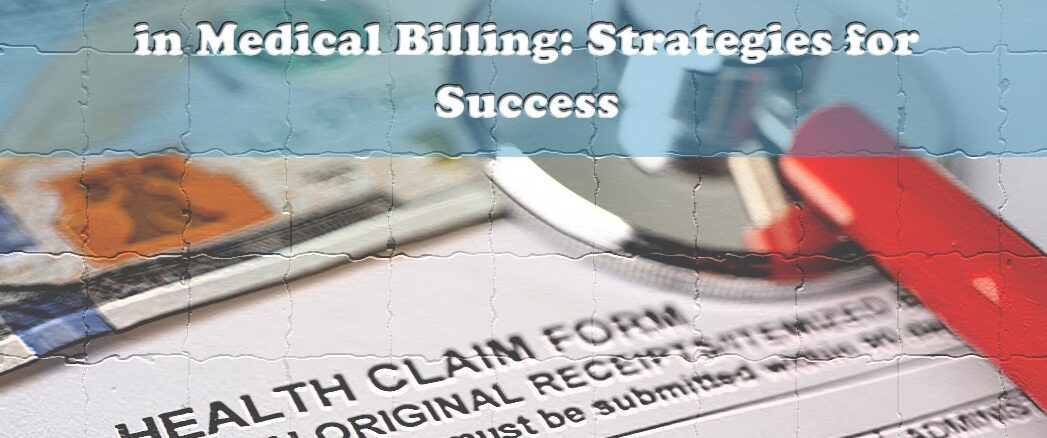Introduction
An essential aspect of the healthcare industry is medical billing, which requires thorough attention o accuracy and details. As a healthcare professional, you must optimize your medical billing processes to improve reimbursement from insurance companies. However, improving rates of reimbursement is both challenging and complex. There are several strategies involved for effective medical coding and billing. These included accurate documentation, proper coding, and efficient submission of claims. Implementing these strategies helps healthcare professionals and patients combat the challenges of the healthcare industry. The article will discuss the key steps that you can use to improve your reimbursement rate. These are
Complete and accurate documentation
Always ensure that all medical documentation is accurate and meets all the insurance company’s requirements. It included documenting patient diagnosis, condition, treatment procedures, and supporting documents like medical test records. There are about 80% of medical bills contain errors. Unclear documentation can contribute to claim delays and denials. To minimize the issues, claims should be complete and accurate the first time and double-check before making the final submission. Common sources of errors are incorrect information about the patients, and healthcare professionals, duplicate billing, poor documentation, and intentional or unintentional under or up-coding.
Verification of insurance coverage
Before providing any medical service, always verify the patient’s eligibility and insurance coverage. It will be beneficial for you to analyze whether a patient is eligible for the provided services or requires pre-authorization before providing these services to the patient. Verifying upfront insurance coverage can prevent claim rejections and reduce the requirements of costly appeals.
Stay updated with coding guidelines
Reimbursement rates are directly affected by medical coding practices. Ensure that the medical coder should be professional, well-trained, and should have sufficient know-how about the latest coding guidelines. These guidelines include CPT, ICD-10, and HCPCS codes. Accurate coding ensures that services are appropriately billed, and it will lead to appropriate reimbursement.
Utilized detailed and specific coding
Whenever you perform medical coding, always be specific and detailed as much as possible. Appropriate use of medical code accurately reflects the provided service. Unspecified or vague codes could result in claim denials or lower reimbursement rates. Only use non-specific and unknown codes once or if they become unavoidable.
Regularly update and review fee schedule
Remaining informed about government payers’ and insurance companies’ reimbursement rates and fee schedules is an essential strategy. Review your billing and fee schedules regularly and make updates to ensure that you accurately billing for the rendered services. It helps avoid overbilling and underbilling and eventually contributes to maximizing reimbursement.
Consider medical billing outsourcing
Medical billing outsourcing is a practical solution for healthcare professionals who need additional resources to manage their in-house medical billing. It helps not save time but also money. However, choosing a reputable outsource medical billing company is essential for effective billing services.
Stay informed with policy changes, and appeal denied claims
Frequent changes are happening in the reimbursement guideline and policy changes. That is why staying updated with these changes and updating the billing team is essential. Awareness about the policy changes ensures the correct submission of a claim and increases the chances of reimbursement. For denied claims, never hesitate to take quick action to challenge the decision. Review denied reasons, gather supporting documents, and make a clear appeal letter for denied claims, increasing the chances of obtaining reimbursement.
Utilize technology
Utilize medical billing and revenue cycle software to automate the billing process. These tools not only help in smoothing the workflow but also improve the accuracy of coding, improve efficiency, and, finally, enhance reimbursement rates.
Continuous staff training
Investing in the ongoing staff training of medical billing staff is an essential strategy for enhancing reimbursement rates. Well-trained staff have more tendency to submit correct claims and effectively navigate the reimbursement process.
Conclusion
Effective medical billing practices are essential for maximizing reimbursement and ensuring healthcare practices’ financial success. Follow-up on denied claims, improving data collection, use of advanced technology, and timely claim submission can help enhance billing accuracy and streamline the billing process. Outsourcing medical billing is also workable for healthcare professionals who lack the expertise and resources to manage in-house medical bills. Compliance with the regulatory authority is crucial to avoid penalties and fines. Analyzing and reviewing fee schedules help ensure billing rates align with industry standards. Healthcare professionals can avoid under-billing by making negotiating fee schedules with different payers. Management of fee schedules also optimizes reimbursement rates.
Frequently Asked Questions (FAQs)
Below are the some common questions about How to Improve Reimbursement Rates in Medical Billing.
How can we improve documentation to support medical billing for maximum reimbursement?
Answer: Improved documentation is essential for maximizing rates of reimbursement. Always avoid using such terms that lead to claim denials. Use a comprehensive medical history of patients, including surgeries, past illnesses, allergies, and medications. Detailed medical history of the patient describes the complexity of the patient’s condition and justifies billed services. Document the decision-making process, including treatment options, test results, and healthcare professionals. It supports the level of service billed and medical necessity. Documentation of all relevant details from disease findings, evaluation, and time-based documentation of various services also helps meet the billing requirements. Implementing thorough and accurate documentation supports medical billing to maximize reimbursement rates.
Why is it essential to verify insurance coverage before providing medical services to patients?
Answer: It is essential as it helps determine the patient’s insurance plan and covers the service being provided. It is also crucial as it confirms the patient’s eligibility for identification of coverage limitation, eligibility of the patient for benefits, and identification of restrictions. It also allows pre-authorization if required. By verifying upfront insurance coverage, healthcare providers can avoid billing for the uncovered services. That eventually contributes to minimizing the risk of claim rejection and maximizing the reimbursement rate.
What information should be essential to verify during the verification process of insurance coverage?
Answer: The vital information required during the process is the insurance policy number of the patient, effective dates, and group number. Furthermore, verify patients’ eligibility for coverage, specific services, coordinated benefits, any pre-authorization requirement, and patient’s financial responsibility, including deductibles, co-insurance, and co-pays.
Why is it essential to improve reimbursement rates in medical billing?
Answer: Improve reimbursement rates are essential for the financial health of healthcare professionals and organizations. Higher rates of reimbursement directly influences profitability and revenue generation. It allows providers to invest in resources, covers the cost, and maintains patient care quality. Improving reimbursement rates also play an essential role in the growth and sustainability of the healthcare industry.
How does negotiating contracts with insurance payers influence reimbursement rates?
Answer: Reimbursement rates can also be maximized through making negotiation contracts. Supporting higher rates of reimbursement, reduction of administrative burden, and smooth processes contribute to the release of the responsibility of healthcare providers. When contracts are favorable, it can be higher reimbursement rates, increased revenue, and enhanced revenue generation for healthcare professionals and organizations.
How outsourcing in medical billing can Improve Reimbursement rates in Medical Billing?
Outsourcing in medical billing is very useful for healthcare providers not only to increase their revenue but also outsourcing help the healthcare providers to pay more attention to their patients. Healthcare providers lose a lot of revenue every year due to claim denials. Outsourcing to professional medical billing companies like Secure MSO help to reduce and recover lost revenue. Secure MSO (Medical Billing Company) has a team of experts with an experience of 10+ years in the field of medical billing located at Stafford TEXAS..
For Invaluable Insights and Daily Updates, Follow Us on LinkedIn or join us on Quora.

